For 20 years, Simon Bullock and wife Jennifer managed a dairy farm. When their third child was born however, the workload became strenuous and something had to give.
“We milked cows for 20 years and had two children with disabilities, but when the third baby was born, we decided that something had to change. That was why we moved on from the cows,” says Simon.
“We still have cattle, but it wouldn’t be as intensive as when we had dairy cows.”
The idea of running a social farm arose due to concerns for one of their children.
“I was thinking about David, our eldest child, and what he would do when he left school,” explains Jennifer, who is also a part-time occupational therapist.
“I was Googling and I came across a farm in Dunfirth, so we decided to visit them and we liked what we saw. After that, we started our first social farm in Aughnacloy in 2011.”
After they introduced social farming to their agricultural business in Co Tyrone – a practice of farming which offers activity on family farms as a form of social support in a non-clinical environment – they decided to follow suit on their home farm in Derrylin.
“People have been coming to Annagh Farm here in Fermanagh for four years. Unfortunately the social farming in Aughnacloy ended last year because the contract finished, but we hope to get it going again,” says Jennifer.
“We started social farming in Fermanagh in 2013 under the SoFAB project, which stood for social farming across borders. We had to offer 30 farm visits and after that we had a break, which was not our choosing, it was because of a lack of funding.”
SoFAB was an EU INTERREG IVA-funded project, which operated in the border counties of Ireland and throughout Northern Ireland between 2011-2014. When funds came to an end, Simon and Jennifer had to find a different financial stream.
“At the moment we are offering 40 sessions through Rural Support, which is a charity based in Cookstown,” explains Simon.
Jennifer outlines the details of this particular scheme: “Rural Support is funded through the referral fund and we offer 40 sessions. Those kind of arrangements are problematic because they have to end and that can be quite difficult for the participants of social farming to understand why they can’t continue to come to the farm.
“It would be better if the trusts or the HSE were to help guardians with personal budgets so they could have control of when the participant wants to finish rather than when a stream of funding ends and they can no longer participate.”
Transformation
As we sit sipping tea in the kitchen area of the building located behind Simon and Jennifer’s 300-year-old thatched cottage, Simon explains that this particular space was once a milking parlour.
“We had the facilities for social farming, but we had to make a few changes. We received a social farming grant, which helped to renovate the milking parlour to a kitchen and workshop area.
“Willowbridge School was getting renovated at the time so I enquired about the furniture. The school passed it by the Board of Governors and we were able to get their old tables, chairs and heaters amongst other things,” says Simon
Farm safety is important on any farm, but when one is social farming, the safety aspect steps up a notch.
“We have always been very aware of farm safety. We have modern sheds and everything is very safe. We went on a farm safety and a social farming training course through the SoFAB project.
“We would carry out risk assessments and we have social farm insurance as well as regular farm insurance,” explains Jennifer.
Social Farmers
Five social farming participants come to Annagh Social Farm every week, on a Monday and a Tuesday.
“They would arrive at 10am and we would have a cup of tea. On the white board we have our schedule of the day’s activities. It is a written and a picture schedule so that those who can’t read can look at the pictures and they know what is happening on the day.
“We tailor what they do on the farm to their specific needs and we take a person-centred focus. Participants fill out a referral form and with the support of their guardian, they write what their goals are and what they would like to do on the farm, and we would tailor it to that,” says Jennifer.
“Every day would be different. We would always have the cows and hens to feed, but one day we could be fruit picking and the next we could be working on the fruit maze, which involves lifting stones from the link box. The guys would wheel the stones into the maze and they enjoy the heavy work, which is purposeful. The activities also have to run with the seasons. If the weather is bad we have workshops so we could be painting or baking as we love to have tea.”
The social farmers are given the opportunity to learn, make friends, and bask in the great outdoors at Annagh Social Farm, but there are benefits for Simon and Jennifer too.
“The beauty of social farming is witnessing their progression. In the beginning, they wouldn’t have known how to ‘grape’ (gather up) silage and a few were too timid to go into the cow shed, but now they wouldn’t think twice. Everyone progresses at different rates and everyone succeeds on the social farm. One of our participants loves to feed the bull, whom he named Freddie,” says Jennifer.
Simon acknowledges how the social farmers have shifted the atmosphere of Annagh Farm. “Farming can be isolating. When milking, you would have been working all day on your own but now it’s different because we have folk coming to the farm between the participants and their carers. The farm has become much more social,” he says.
“When the kids are off on holidays they would be here as well, they are very much involved and happy with how things are going. David and Mark’s school came out to visit the farm and so did Emma’s.”
Brexit
With Brexit hovering like a dark cloud, Simon and Jennifer can only wonder what lies in store as their location along the Woodford River, which forms the border between Cavan and Fermanagh, brings extra complications.
“In the past we were the only house between the Northern and Southern custom spots so that is a concern again, we don’t know how it is going to work out. We are hopeful that we will be able to continue working and living the way we were when we were part of the EU,” says Simon
“There is another social farm in Fermanagh that has individuals coming from the Republic and I would like to think that that will continue because the health systems are doing a lot of cross-border work.
“There are people who are going from the Republic to Northern Ireland for operations and vice versa so hopefully that will prevail.” CL
See www.ruralsupport.org.uk/social_farming/annagh-care-farm/






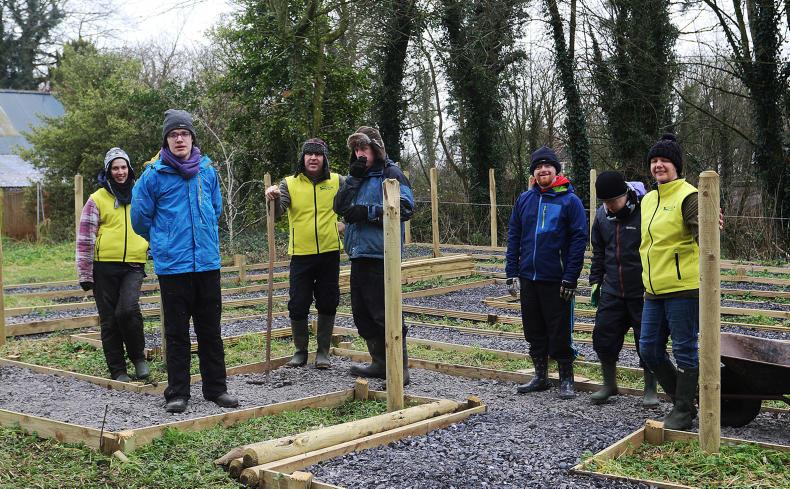
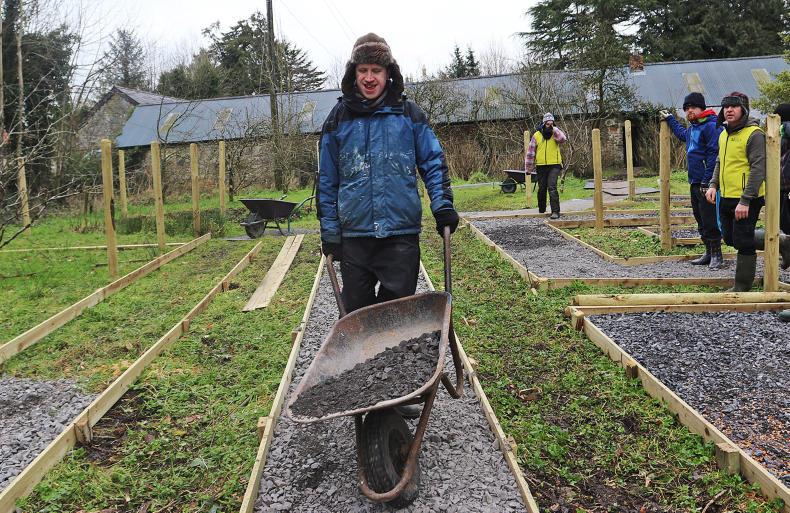
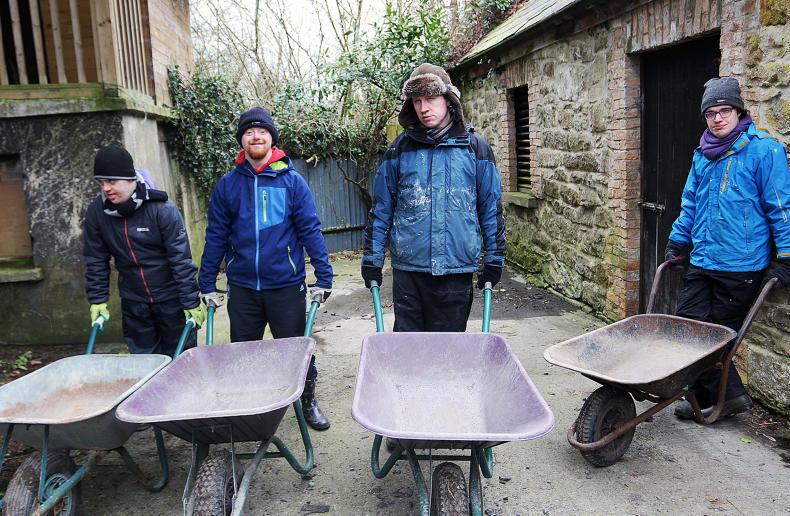

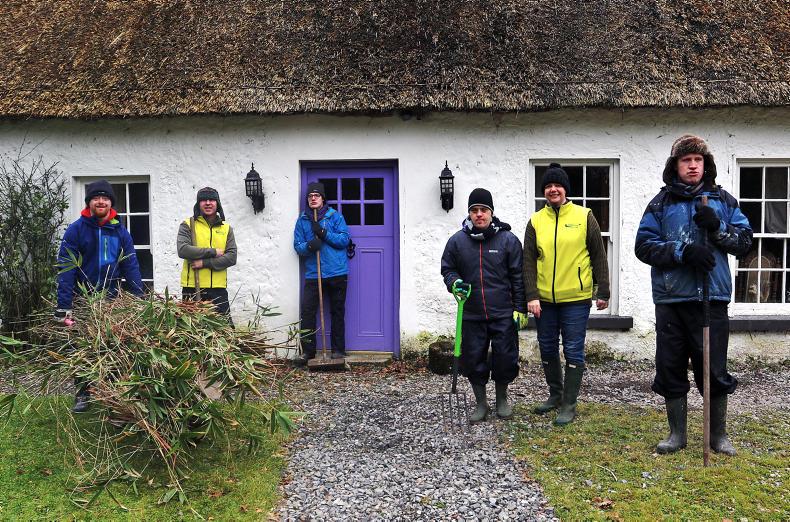
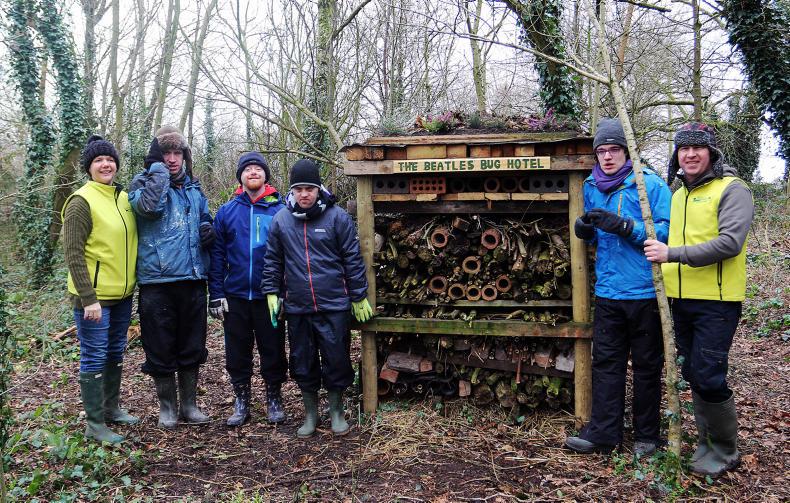

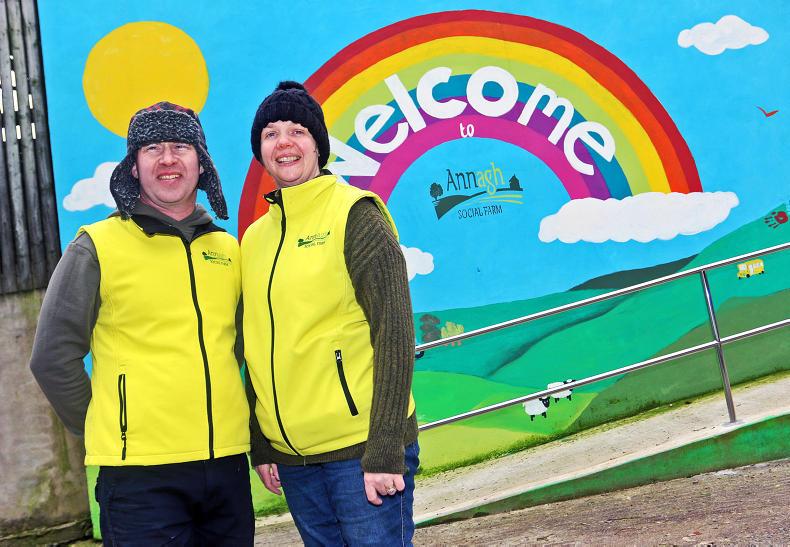
SHARING OPTIONS